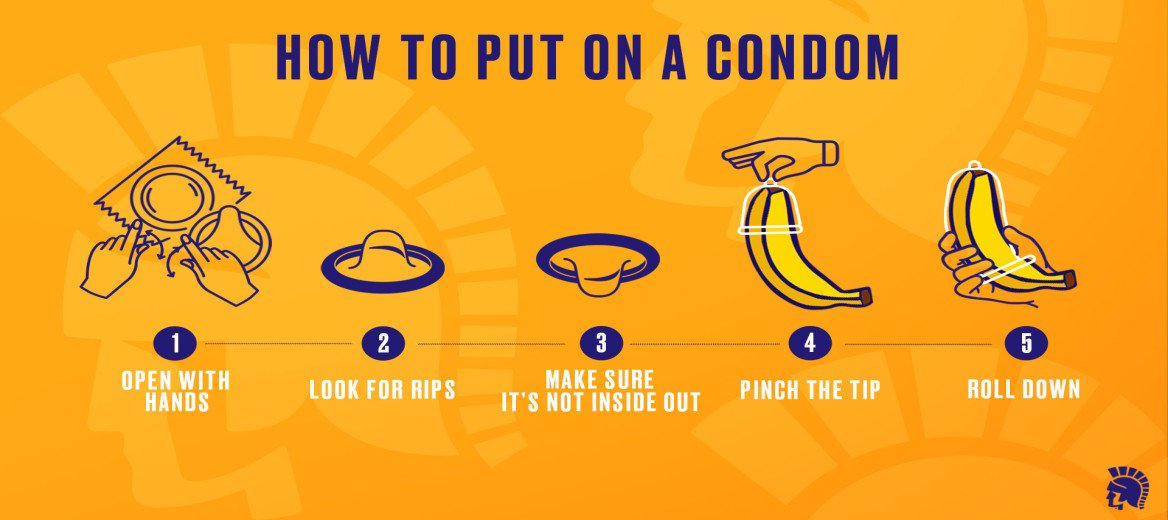HEALTH + WELLNESS
Let's Talk about Sex: Communicating with Your Partner

Great sex is about great communication. Be curious and ask your partner questions about sex and give honest answers when you're asked. Try these tips for how to talk about sex in a new (or ongoing) relationship and what to say when your partner asks about your fantasy -- without being awkward.
STIFF: Steps for Talking with Your Partner About Sexual Needs & Wants
Talking about sex with your partner is an ongoing process, not just something you do at the beginning of a relationship. Your bodies, needs, wants, desires and fantasies change over time and you'll also want to keep your sex life fresh and fun. Communication keeps relationships healthy and - not so coincidentally - keeps sex healthier, too!
What makes communication with your partner good communication? When you're talking about sex with your partner, make sure it's STIFF. Thats Specific, Transparent, Intimate, Frequent and Frank.
Specific: While flirting and innuendo is a fun part of foreplay, when it comes to communication about your needs and wants, don't be coy or oblique. Use plain and precise language so everyone understands what you want to have happen and whether they agree to try it. "Please [verb, such as kiss, touch, rub, grab, lick, stroke, tickle] my [insert specific body part here]" is much better than "Touch me" or the ever-helpful and generic "Do it." This is also where you get to talk about which condom you prefer for protection and pleasure. Trust us, it matters.
Transparent: Withheld secrets can make communication both difficult and dishonest, and trying to play out secret desires can break consent. Be clear and open. When it comes to sex, it's really hard to get TMI. Information is important so you and your partner can make informed choices, be protected, and also know how to best bring pleasure to each other. Transparency also includes being open about any lubes and toys you want to try, really like or want to avoid. Say things like "I like [product, position, etc.]. What about you?" Or "I dislike [product, position, etc.]." You can expand with a reason if it would give helpful information to your partner, but don't feel obligated to do so. Your reasons are your reasons and not up for debate. If you don't know what you like, say that, too, then say what you're interested in trying, together.
Intimate: Sharing your past and your preferences can seem awkward or embarrassing but that makes it part of intimacy and growing closer. Bodies and sex are sometimes awkward and embarrassing, so talking with your partner helps to get over those barriers. Plus, when you're vulnerable with each other, you grow closer and shared intimate psychological and emotional moments can also heighten intimate physical ones. So think of intimate communication as both relationship-building and foreplay!
Frequent: More communication is better than less. Mind-reading is not a thing, we promise. Thinking "I wish my partner would do [x]" and squirming or making vague exasperated noises is not a form of communication and does not convey what you want to your partner. Talk about what you want before you get busy, during sexy time, and debrief after during cuddles. You can even talk about fantasies and desires while watching a movie, or after you've learned about a new technique or position.
Frank: No not that Frank. We're not talking about Frank Sinatra or Frank N. Stein, but frank as in another word for honest. Tell the truth about your desires and boundaries. Your partner(s) cannot consider your desires or respect your limits if you are not honest. Don't say yes when you mean no and don't fake it. It's also okay to admit that you're not sure if you will like something, but you'd like to try, or to say that something isn't working but you're not sure how to fix it.
Of course, you have the right to stop any activity at any time - review our guide to consent if you need a refresher. If you think you might like something and it turns out you honestly don't, the magic words are "stop" and "no." Don't lie about your experience or about whether something feels good - you'll get called on it by your partner and that lack of truthfulness will erode trust in your relationship, which is never a good thing. So make sure you're frank.
Note: you should always be honest and open about your sexual history and your STI test results as well. Let your partner know when you've been tested and what your results are and whether you are on PReP, for example. Also note: if you're hooking up with a new partner, use a condom every time to protect both of you from sexually transmitted diseases and unintended pregnancy -- yes, even if you are both virgins.
Talking about sex with your partner doesn't stop once the touching, kissing, and sexual activity begins. Communication during erotic play improves the experience. Sexy or dirty talk is a turn-on for most people. Communication is best when it's STIFF.
@trojanbrandcondoms Communication (and sex) are always best when STIFF😉
#FYP #ForYou #LearnOnTikTok #LearnWithMe
TALKING ABOUT SEX, FANTASIES AND MORE WITH YOUR PARTNER - WITHOUT BEING AWKWARD
Most of us have a sexual fantasy or two. Some of us have many and fantasize every day, multiple times a day. So much to try, so little time. It's normal and healthy to imagine pleasurable activities or giving pleasure to someone else. So let your imagination run wild!
Helping your fantasies and desires make the jump from your mind to your bedroom requires communication though. Remember, your partner can't see the movie in your head, so you have to tell them what you're thinking. Sharing your fantasies with your partner can help you get closer - both physically and emotionally.
But fantasies are only one part of what you should communicate with your partner about sex. Basically there are series of "aw yeah" and "heck no" aspects to sex that you can sometimes anticipate, but sometimes just pop up suddenly while you're in the sheets (or on a table, in a vehicle, or in the shower). Here are some other topics you'll want to talk to your partner about as you explore sex together:
Don't go there, that's a boundary. Let your partner know what you are open to at this time. Remember that boundaries can and do shift, depending on mood, comfort, and many other factors. They may even shift during foreplay and sex and that is okay! Communicate a boundary shift to your partner and adjust so sexy time stays pleasurable and consensual for everyone.
Yes, that's good! It's important to let your partner(s) know when something feels good and you are enjoying it! Affirmation validates your partner and encourages them to keep going or do it again - which means more pleasure!
This hurts or this isn't working for me. Conversely, you need to communicate when something doesn't feel good and you're not having fun. That way, others know to stop or adjust. Remember, your partner can't read your mind and they want you to feel good (or great!), so they'll appreciate you letting them know.
More! You know when something is feeling good, but it could feel really good? Let your partner know if you want something to be harder, faster, deeper, stronger or more intense. If they agree, then get ready for some new heights of pleasure.
Slow down. If things are getting too intense, hard or fast, you need to let your partner know that you'd like them to slow down, get less intense or softer. Your partner should respond by doing what you ask right away.
I want this, please. It's important to communicate what you want to see, feel, experience, or play with your partner. If you don't let your partner know, they won't be able to help you achieve your desires and fantasies. What you desire can be anything from a new position or location, to roleplay or costuming, to a new technique or toy or kink. It might even be a new relationship type to explore.
I need this, please. Needs are different from desires. While wants are negotiable between you and your partner(s), needs are considerations that must be met so that you are able to participate. Examples include needing a specific amount of light in a room, not having your hands bound, no shouting, always cuddling after sex, etc. Be sure to share your needs openly and honestly - your partner wants to meet them and make sure you are comfortable and feeling safe and ready.
Stop, now. When you've reached a boundary or a limit, you need to communicate "no more" quickly, clearly, and succinctly. Make sure that you and your partner have a safe word that you use to mean "stop now." Some examples are "red, red" as in the red of a stop sign, repeated twice for emphasis. Other examples are two syllable words that you wouldn't typically say otherwise during sexual activity, such as "toothpaste" or "cheesecake." It can be fun to create a mutual safe word with your partner that is personal and meaningful to you.



